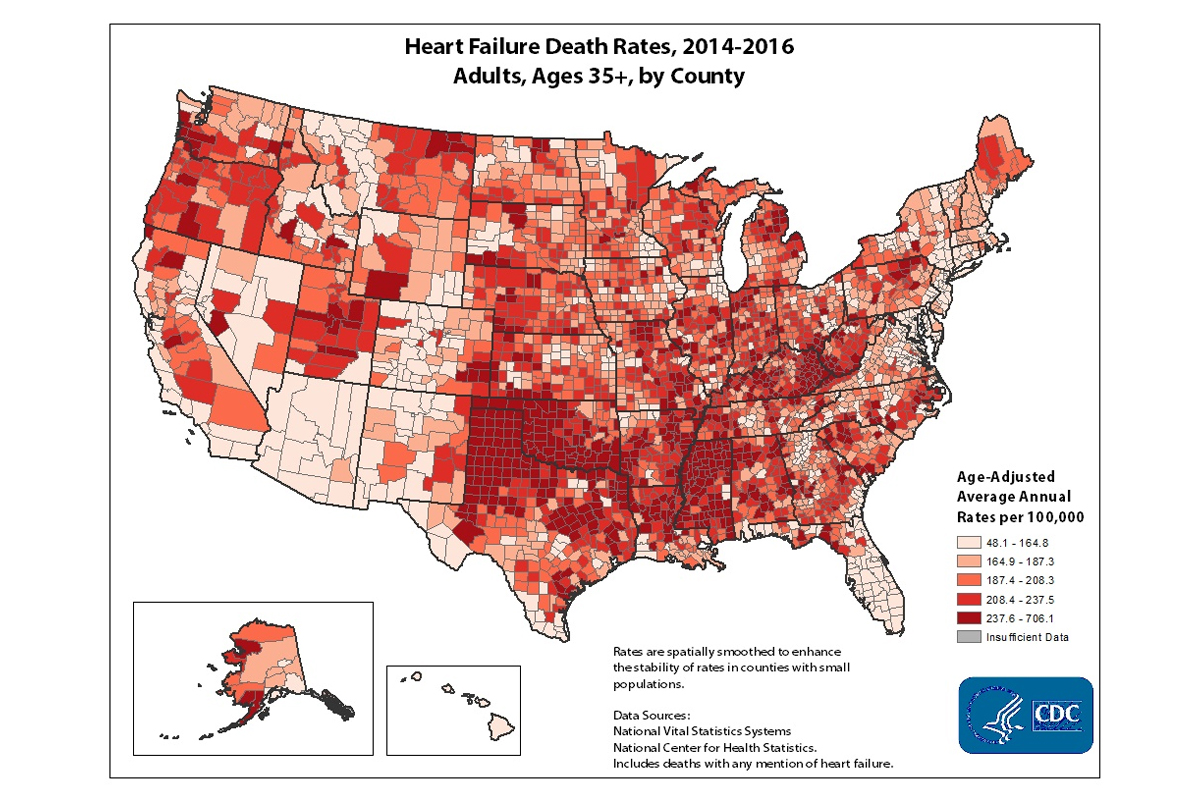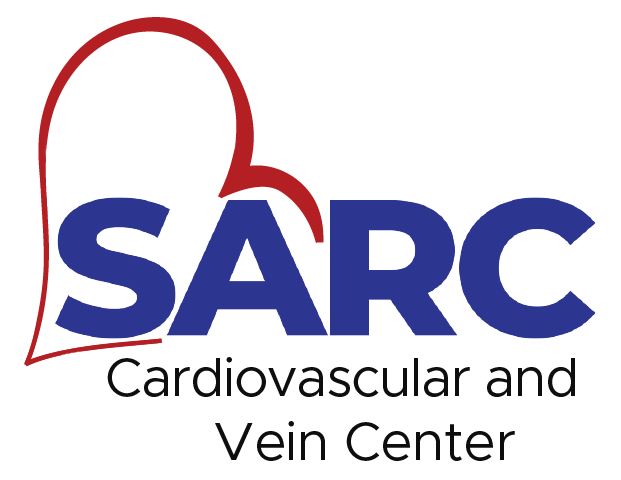
Heart failure happens when the heart cannot pump enough blood and oxygen to support other organs in your body. Heart failure is a serious condition, but it does not mean that the heart has stopped beating.
Facts About Heart Failure in the United States
- About 6.2 million adults in the United States have heart failure.
- In 2018, heart failure was mentioned on 379,800 death certificates (13.4%).
- Heart failure costs the nation an estimated $30.7 billion in 2012. This total includes the cost of health care services, medicines to treat heart failure, and missed days of work.
Deaths from Heart Failure Vary by Geography
Heart failure is more common in some areas of the United States than in others. Below is a map showing the rate of death from heart failure by county during 2014–2016.

What are the risk factors for heart failure?
Certain medical conditions can increase your risk for heart failure, including
- Coronary artery disease (CAD) (the most common type of heart disease) and heart attacks
- Diabetes
- High blood pressure
- Obesity
- Other Conditions Related to Heart Disease
- Valvular Heart Disease
Unhealthy behaviors can also increase your risk for heart failure, especially for people who have one of the conditions listed above. Unhealthy behaviors include:
- Smoking tobacco
- Eating foods high in fat, cholesterol, and sodium
- Not getting enough physical activity
- Excessive alcohol intake

What are the symptoms of heart failure?
Common symptoms of heart failure include:
- Shortness of breath during daily activities
- Having trouble breathing when lying down
- Weight gain with swelling in the feet, legs, ankles, or stomach
- Generally feeling tired or weak
How is heart failure treated?
Early diagnosis and treatment can improve quality and length of life for people who have heart failure. Treatment usually involves the following:
- Taking medicines
- Reducing sodium in the diet
- Drinking less liquids
- Devices that remove excess salt and water from the blood
- Heart transplant and other surgeries
- Getting daily physical activity
People with heart failure also track their symptoms each day so that they can discuss these symptoms with their health care team.
